Photos from D-Day give glimpse into historic World War II invasion 79 years ago
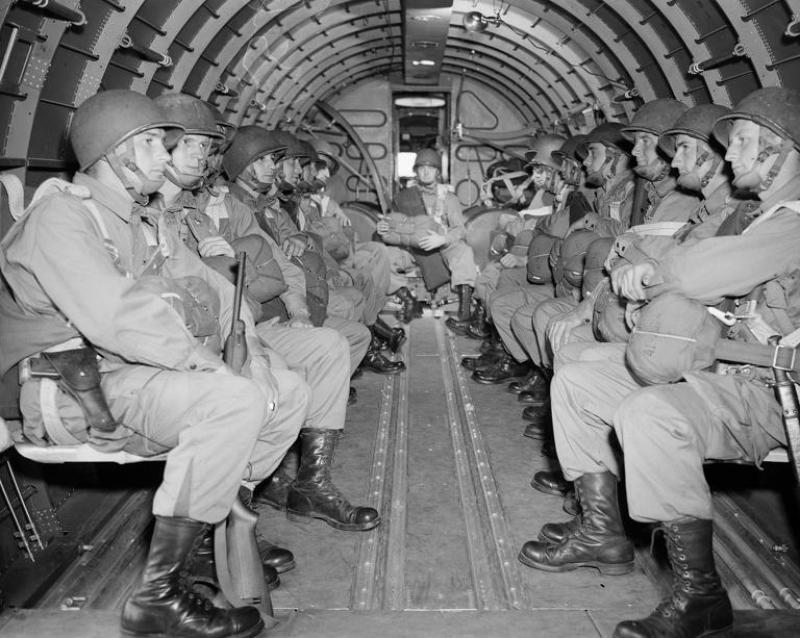

Tuesday marks the 79th anniversary of the historic D-Day operation.
In the midst of World War II on June 6, 1944, Allied forces stormed the beaches of Normandy in Nazi-occupied France. More than 156,000 troops, notably from the United States, Britain and Canada, confronted Nazi forces on D-Day forever reshaping the war, according to the Department of Defense .
D-Day began the assault phase (codenamed Operation Neptune) of the wider Allied invasion of northwest Europe led by Gen. Dwight D. Eisenhower, known as Operation Overlord. According to Britannica , by the end of August 1944, all of northern France was liberated from Nazi control.
How many people died on D-Day?
The exact number of people killed in the fighting is unknown , but research by the U.S. National D-Day Memorial Foundation estimates there were over 4,000 Allied deaths and between 4,000 and 9,000 German losses on D-Day.
More than 100,000 Allied and German soldiers died during the full Battle at Normandy and around 20,000 French civilians were reportedly killed in the bombings.

Joseph Vaghi, center, a U.S. Navy ensign, chats with residents of Colleville-Sur-Mer, France, on June 6, 1944, after Allied forces stormed the Normandy beaches. © -, AFP/Getty Images

A photo taken June 6, 1944, shows the Allied forces soldiers landing in Normandy. In what remains the biggest amphibious assault in history, some 156,000 Allied personnel landed in France on that day. An estimated 10,000 Allied troops were left dead, wounded or missing, while Nazi Germany lost between 4,000 and 9,000 troops, and thousands of French civilians were killed. © -, AFP/Getty Images
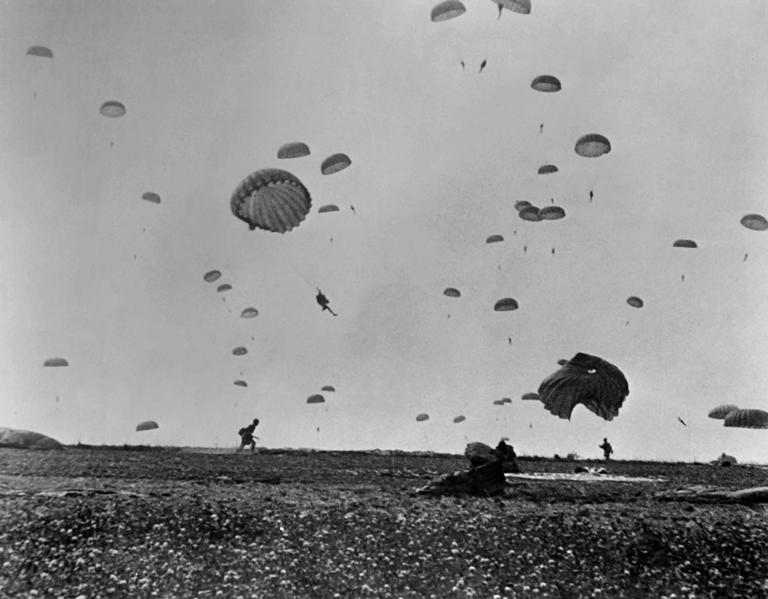
Paratroopers of the Allied Army land on La Manche on the coast of France on June 6, 1944, after Allied forces stormed the Normandy beaches during D-Day. © AFP/Getty Images
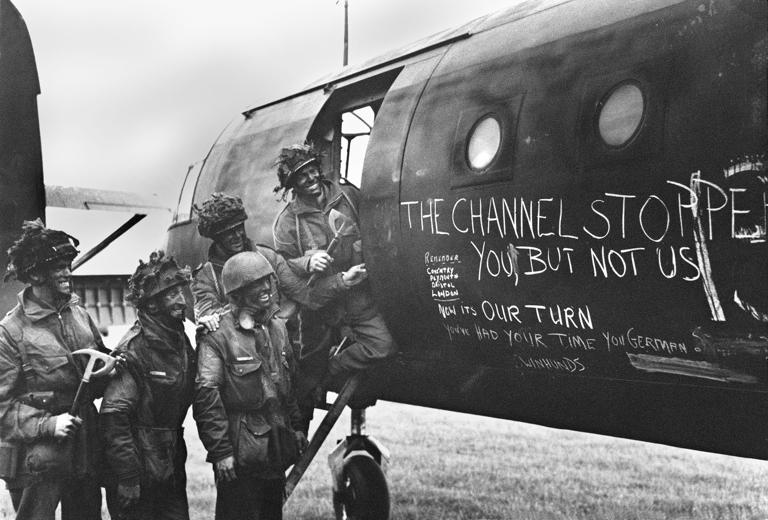
British paratroopers, their faces painted with camouflage paint, read slogans chalked on the side of a glider after Allied forces stormed the Normandy beaches during D-Day on June 6, 1944. © STF, AFP/Getty Images
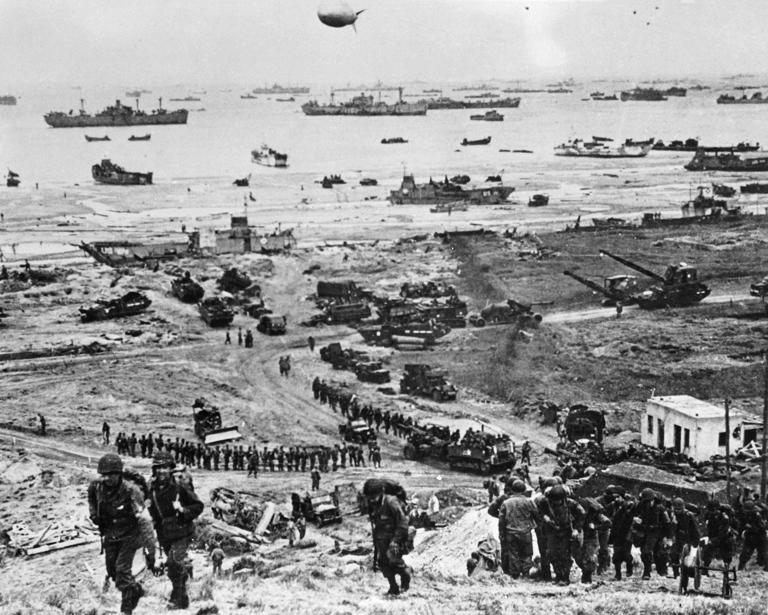
This file photograph taken on June 6, 1944, shows Allied forces soldiers during the D-Day landing operations in Normandy, north-western France. © AFP/Getty Images
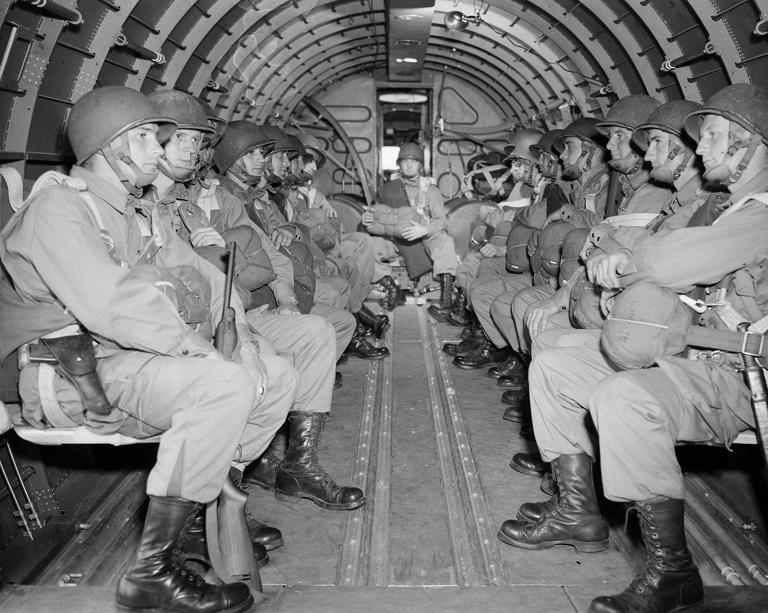
American paratroopers, heavily armed, sit inside a military plane as they soar over the English Channel en route to the Normandy French coast for the Allied D-Day invasion of the German stronghold during World War II, June 6, 1944. © ASSOCIATED PRESS
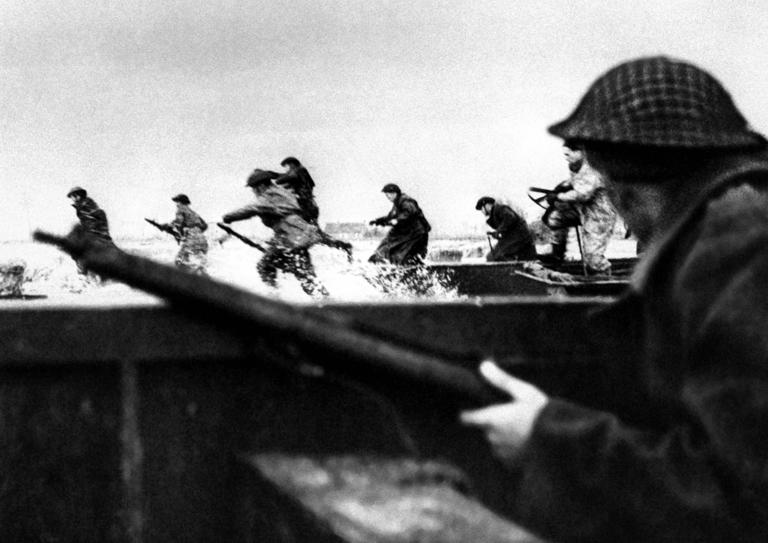
Canadian soldiers land on Courseulles beach in Normandy as Allied forces storm the Normandy beaches on D-Day. © AFP/Getty Images

U.S. Army troops advance on Omaha Beach June 6, 1944, D-Day



The Longest Day - Paul Anka
Not to take anything away from their heroism...there is nothing like complete air superiority.
“A Rendezvous With Destiny.” 506th Parachute Infantry Regiment, 101st Airborne. The tip of the spear.
We see British paratroopers reading the slogans on the side of their transport plane. In the smaller print on the left side near the door we see the words
Reminder
Coventry
Plymouth
Bristol
London
"NOW IT'S OUR TURN"
-
four English cities that had been heavily damaged by German bombers earlier in the war.